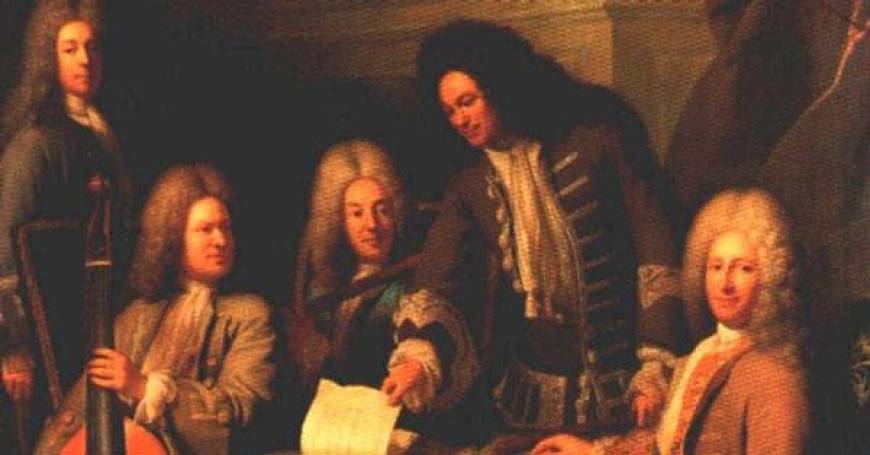How much do we really know about classical music? I have recently read about how success happens to only a very small number of people. How everything that is successful is a tiny portion of the whole. How the law of the fittest seems to apply on a larger scale than expected, and that even when it comes to creativity, there seems to be a dominance too; it is quite observable in arts, and particularly in music. Indeed, out of all the composers that have existed over the centuries, and to which history has given a public place, only a handful are really well-known and performed up to this day.

© aesdes.org
For instance; in Western classical music, here is what springs to most minds first: Mozart, Beethoven, perhaps Schubert, Tchaikovsky, or Wagner for a smaller majority. Unfortunately, as much as he is present in popular culture and unavoidable, Bach is often left unnamed. Out of the two most well-known names, Mozart and Beethoven, these are often the works that one can think of, recognize, and perhaps even name: The Serenade No. 13, the Symphonies No. 25 and No. 40, the Clarinet Concerto or Le nozze di Figaro for the former, while the Symphonies No. 5 and No. 9, the Piano Sonata No. 14 or The String Quartet No. 13 for the latter. Out of the enormous quantity of works they have both birthed, only. a fraction seems to remain in the minds of modernity. What does this say about classical music then?
Beethoven’s String Quartet No. 13 in B-flat Major, Op. 130 (Grosse Fuge) – American String Quartet
Well yes, out of the millions and millions of works composed in Western Europe — only —, over centuries and centuries, by hundreds and hundreds of composers, only a tiny fraction is indeed remembered today. And this applies even to the most disciplined amateurs of music. A concert programme in the United Kingdom for instance, in 2022, will feature the likes of Wagner, Bizet, Mahler, and Berlioz. A wonderful selection indeed, but still a fraction of the whole, and quite a recurring one. To make matters worse, as the years go by, there is always an anniversary or an occasion to celebrate — the birth, the death, the 20th, 30th, 40th or 100th anniversaries — and therefore a somehow constant repetition of the most performed, the most well-known. While there is a knowledge, a recognition of this tendency to favour artists, unfortunately, the audience gets what they ask for; and what they ask for are the Big Boys of classical music. Just like the Big Five of Africa, these are the ones that get all the attention and for which the public travels and pays.
Mahler: Symphony No. 5 (Adagietto) – BBC Proms 2014
How many weddings and funerals have been soundtracked by Pachelbel and Gounod? How many telephone waiting lines on Vivaldi? Nowadays even with composers alive, the selection is tight, and one can recognise Einaudi’s or Zimmer’s works in movies and commercials a little too often perhaps. While there is of course a practical — or financial — reason for that; which is the absence of copyrights and royalties allowing one to not only freely use a piece of music but at very little cost, as only the mechanical recording rights remain, the royalties on composing have vanished. Between that, and paying a living composer, the choice is done quite quickly for businesses…
Antonio Vivaldi – The Four Seasons (Full) Live at Tel-Aviv Museum of Art
Only the best and the strongest remain, has proven history. It is the law of the fittest, and for some questionable reason, it applies to arts and music too. But is it really? Is art really bound to be ranked and classified, some of it remaining at the top while others are discarded as not being good enough. While it seems to be the case when treated popularly — after all, why should one care about every single piece of music written by even the most obscure composers — there might be a case of the enlightened ones bringing the rest of the whole, and allowing the rest of the whole to be promoted rather than buried.
For more of the best in classical music, sign up to our E-Newsletter
